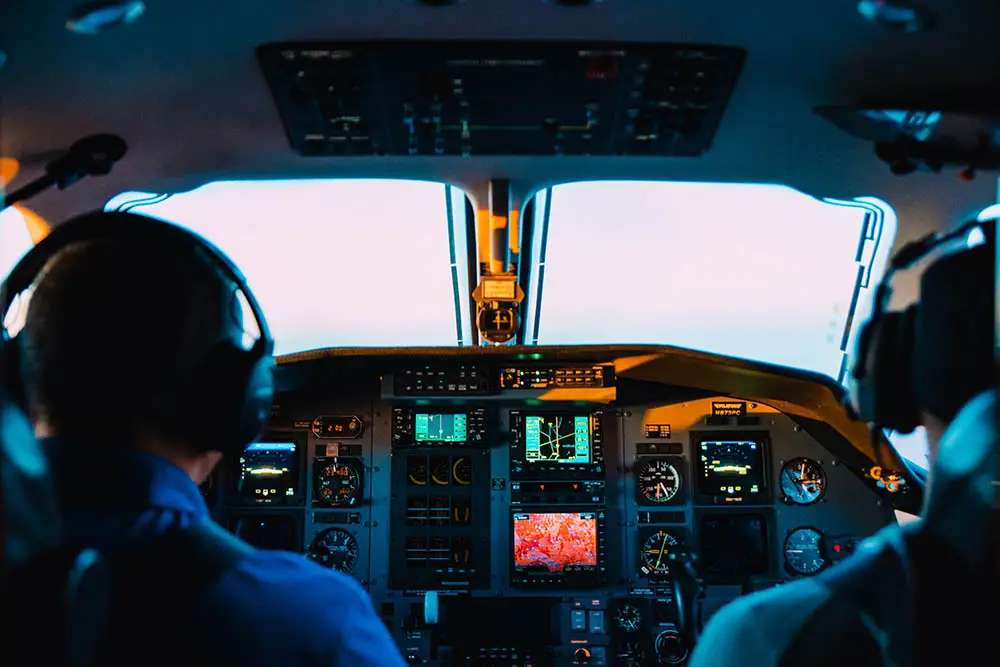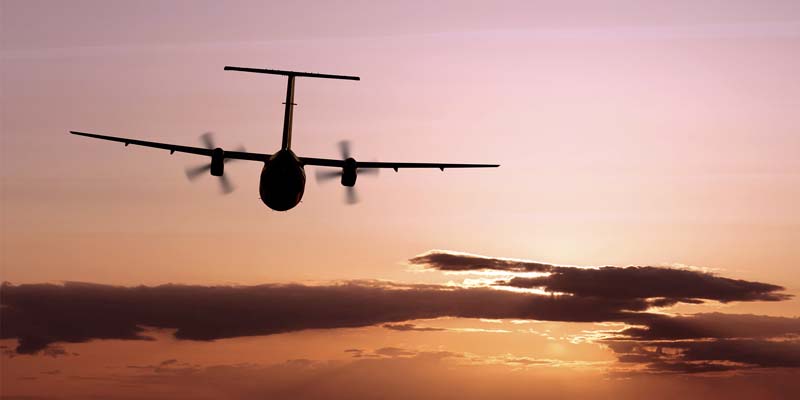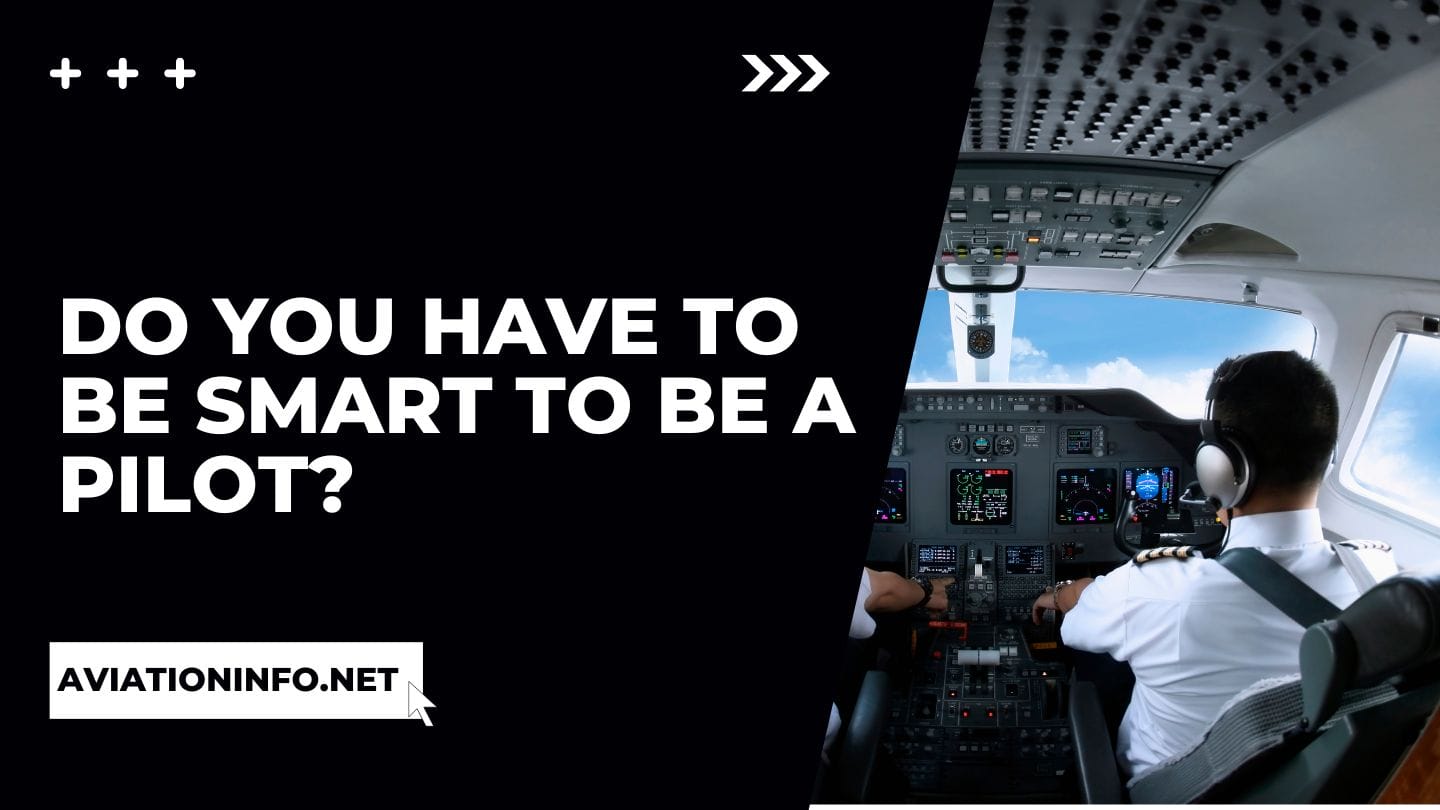It’s obvious that the field of aviation demands a lot of time and commitment, but do you have to be smart to be a pilot?
The short answer is no, but the details can be a lot more complicated than that.
Being a pilot is, by no means, a simple task, and you’ll need to have a specific skill set to do your job well. While you don’t have to be a genius to master these skills, there are still requirements to keep in mind.
Is There an IQ Requirement for Pilots?
The great news is that there isn’t a specific IQ threshold you have to pass to become a pilot.
That said, IQ still isn’t a completely useless metric.
Flying a plane is difficult in itself. For one, you have to think on your feet and make quick decisions—some even involving on-the-spot calculations!

However, most flight schools recognize that intelligence isn’t 100% measured by IQ tests. In fact, the Theory of Multiple Intelligence can gauge the cognitive processes of pilots even better than traditional IQ scores.
So, you don’t have to worry too much about metrics like IQ. As long as you pass the aptitude tests, you can still become a pilot.
Also Read: X on a Runway or Taxiway – What Does It Mean?
What Do You Actually Need to Become a Pilot?
Now that we’ve established that IQ isn’t the only basis, let’s take a look at what you need to become a pilot.
1. Excellent Physical and Mental Health
Medical exams are among the first tests you’ll have to take when starting your aviation journey. A team of medical examiners will assess if you have any existing conditions that could get in the way of you flying a plane safely.
For instance, people prone to heart attacks and strokes can be disqualified. Meanwhile, people with bad vision can undergo corrective surgery and get a pass.
2. Spatial Intelligence
Spatial intelligence is actually one of the modalities included in the Theory of Multiple Intelligences. All in all, we describe spatial intelligence as the ability to see things three-dimensionally, and it’s one of the most useful skills for a pilot.
Don’t just take our word for it; research shows that abilities in spatial reasoning are excellent predictors of how successful a pilot’s performance will be.
One way you can train your spatial intelligence is by using flight simulators. Thankfully, you don’t need to spend a ton of money on equipment since you can start with simple desktop flight simulators like Microsoft Flight Simulator or X-Plane.
You’ll also get more opportunities to work on this aspect in flight school.
3. Good Navigation Skills
Before you receive a license to fly a plane, you’ll need formal education.
Nobody expects you to be the best navigator on your first day of pilot training. Even if you’re particularly smart, this is something that will take time to master.
The good thing is that flight school will teach you the fundamentals, including aerodynamics, navigation, and propulsion. You’ll learn the theories in the classroom and then get the chance to apply what you’ve learned.
4. Knowledge of Aviation Regulations
Aside from navigational skills, you’ll also need to know the aviation rules. These can seem a little boring to some people, but you still need to know them like the back of your hand.
The regulations can include the certifications you need to qualify as a pilot as well as what you can and can’t do inside a cockpit.
Also Read: How Much Snow Does It Take to Cancel a Flight?
5. Passion for Aviation
Being smart certainly helps, but it won’t cut it if you lose motivation halfway through flight school.
The thing is, it’s hard to put in the hours when you’re not passionate about becoming a pilot. After all, this career path it’s not an easy route, nor is it a short one.
As it happens, a study linked the relationship between pilot motivation and performance—the lower the student motivation level, the poorer the actual performance during flight training.

One way to combat loss of motivation is to look at the success of the pilots that came before you. Take the Wright brothers, for example. Orville and Wilbur Wright were among the earliest pioneers of aviation. Yet, they were inspired by people like Otto Lilienthal.
The Wright brothers went through several prototypes before building the first-ever working aircraft. None of the failed attempts stopped them because they had enough inspiration to push them forward!
6. Good Leadership Skills
Sure, an aircraft can have more than one pilot. However, there will always be a Pilot in Command (PIC) or a Captain.
This could be you someday!
However, being the Captain in a cockpit isn’t just about being a smart pilot. It also requires excellent leadership skills.
Fortunately, the best way to practice becoming a good leader is to be a great follower. You’ll have plenty of time to do that while you’re building up the flight hours!
7. Enough Funding
Moving on to the more practical side of the equation, training to become a pilot can be rather expensive. Most flight schools aren’t free, and you’ll have to secure sufficient funding to cover your tuition fees.
Don’t let that discourage you; the demand for pilots has been steadily increasing. As a result, there has also been an increase in the available aviation scholarships. However, landing this kind of scholarship might require outstanding academic performance.
Is Becoming a Pilot Worth All That Hassle?
Overall, becoming a pilot is as rewarding as it is challenging. While flight school can be tough, this profession allows you to travel around the world with great financial compensation!
Final Thoughts
Do you have to be smart to be a pilot? No, you don’t need to be an absolute genius.
However, you do have to be competent and healthy enough to get into a reputable flight school and pass your classes. Being good at math and science will definitely help, too.
In addition, you’ll need funding, adequate mentoring, tons of practice, and a healthy dose of passion to see this career choice through to the finish line!

After visiting more than 60 countries, I have probably been on every type of plane there is and visited countless airports. I did my very first international solo trip to South Africa at the age of only 16 and haven’t really stopped traveling since.
Despite the adventurous travel itch, I do have a nerdy side as well – which is satisfied by writing about all things aviation “too boring” for my regular travel blog.
